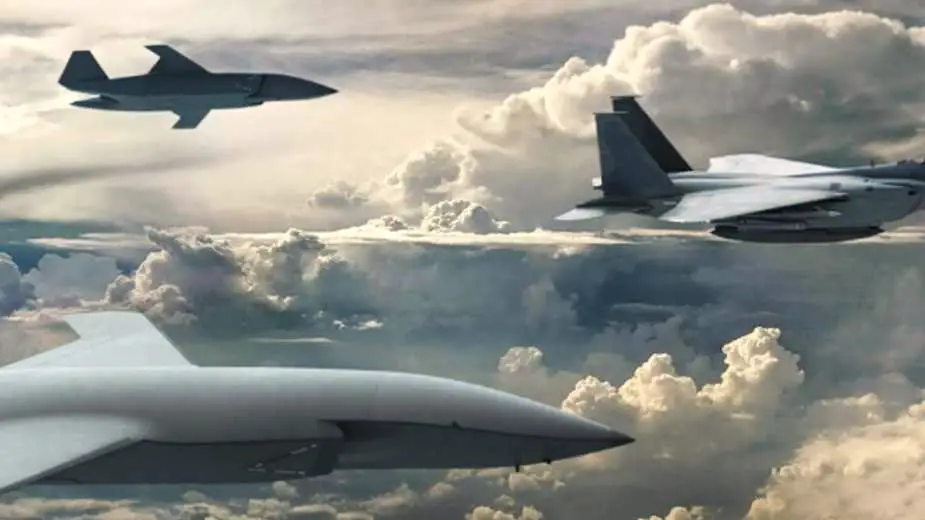Breaking news
US Department of Defense aims to deploy 1 000 AI-controlled fighter jets to support human aviators.
Christopher McFadden, in an Interesting Engineering article, reports the U.S. Department of Defense's announcement to invest in creating an artificial intelligence-controlled aircraft fleet under the Collaborative Combat Aircraft (CCA) program. This initiative is part of a broader $6 billion plan to integrate over 1,000 new drones into the United States Air Force (USAF), designed to function alongside manned aircraft for defense, escort, strike, and reconnaissance roles.
Follow Air Recognition on Google News at this link
 Artist's impression of Boeing MQ-28 wingmen in formation with a piloted F-15EX (Illustration source: Boeing)
Artist's impression of Boeing MQ-28 wingmen in formation with a piloted F-15EX (Illustration source: Boeing)
These AI-operated drones must autonomously fly at least 30 feet above ground and achieve speeds up to 600 mph, capable of executing complex maneuvers, providing protection, engaging targets, and conducting reconnaissance. The Department of Defense expects to award contracts to two companies by the upcoming summer to produce these aircraft, aiming at delivering hundreds within five years at a cost of $10 million to $20 million each, significantly less than current manned aircraft like the F-35 and B-21.
Air Force Secretary Frank Kendall notes these drones will perform tasks beyond the reach of conventional manned fighter jets. Designed for expendability, these drones may be retired or destroyed after one or two missions, in line with the Pentagon's "Replicator program" to counter China's drone advancements.
Major defense companies, including Boeing, Lockheed Martin, Northrop Grumman, General Atomics, and Anduril Industries, have shown interest in developing these drones. Boeing has revealed its MQ-28 “Ghost Bat” proposal, an AI-driven unmanned aircraft to enhance current military aircraft capabilities.
Deputy Secretary of Defense Kathleen Hicks highlighted the strategic deployment of AI-enabled autonomous vehicles by the US military as a move towards cost-effective, disposable units that accelerate military innovation, aiming to maintain a technological edge in modern warfare.


























